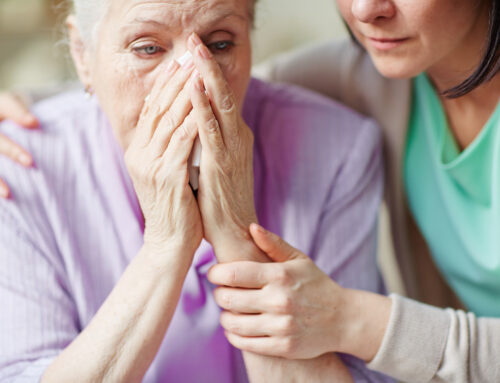When my sisters and I began caring for our dad several years ago, our lives were turned upside down. We took turns checking on him after work, fighting rush hour traffic to get to his home to spend a little quality time with him. We also had to make sure he was eating and taking his medications. Within a couple of months his needs increased, our bandwidth was stretched to the limit, and we moved him into an Assisted Living Facility. In hindsight, hiring a home care aide was probably just what we needed.
What is Home Care?
Home care is care that allows an older individual, one who is chronically ill, one with disabilities, or one who is recovering from an acute illness or injury to remain in their home. Home care can be a significant factor that allows individuals to “age in place”. Aging in place is a phrase used to describe being able to stay in your own home or the residence of your choice as you age, without sacrificing your quality of life. According to the U.S. Census Bureau, there will be approximately 70 million Americans 65 years of age or older by the year 2030. According to research by the AARP, 90% of seniors want to remain in their own home as they age. If you are blessed to still have living parents, managing their care as they age is an issue you will need to address. Share on X
Unlike home health care, which includes specialized nursing care, physical and occupational therapy, and speech therapy, home care includes services that are typically oriented around assistance with activities of daily living (ADLs).
ADLs are the activities necessary to care for oneself and maintain independence. They include the following:
- The ability to move safely from one place to another, which includes transferring to/from a wheelchair, when applicable
- Showering and/or bathing
- Dressing
- Personal hygiene, which includes oral/mouth care and hair washing
- Toileting (including getting on/off the toilet and proper cleaning afterward)
- Self-feeding
Home care may also include assistance with household chores, such as light house cleaning and laundry, meal preparation, and transportation.
Another very important, but often overlooked service provided by home care professionals is companionship. Share on X
There is an increasing amount of research that connects loneliness among seniors to depression and even death. Having someone in the home to engage in conversation with your loved one while you are at work can be an invaluable service.
Who Provides Home Care Services?
Home Care agencies provide home care services to individuals throughout the United States. Services may be provided by a variety of employees with a varying amount of training and expertise. Personal Care Assistants (PCAs) are unlicensed caregivers who provide assistance with ADLs (described above) and companionship. They are not allowed to provide any health care services. Home Health Aides (HHAs) are also unlicensed but they may complete a training or certification program. They are not required to have a high school diploma or GED equivalent. In addition to personal care services, home health aides can check vital signs, perform minor wound care, and assist with medications. Geriatric Nursing Assistants (GNAs), also known as geriatric aides, have training requirements that vary based on the employer. They must have a high school diploma or GED equivalent and can take vital signs in addition to providing personal care services. Lastly, if your loved one requires medical services or if you use a home health care agency, care may be provided by Certified Nursing Assistants (CNAs). CNAs work under the direct supervision of a nurse. As the name implies, they must complete a certification program and may provide medical services (such as vital signs, wound care, and assistance with medical procedures) in addition to personal care services. If you prefer not to use an agency, you can also hire independent caregivers privately. Sometimes home care services can also be provided by friends, neighbors and other family members.
Summary
In summary, home care services can be incredibly beneficial to both aging or chronically ill individuals and to their family caregivers. Having the assistance of a home care aide can allow an older individual to age in place. They can also provide respite care so that the caregiver can take a much-needed break. If you are a caregiver, please don’t feel guilty about exploring outside help for your loved one. Share on XWhen you are rested and well, you will provide better care for your family member.
In Part 2, we will discuss how to vet home care agencies/aides, the cost of home care services, and whether these services are covered by insurance.
My mission is to help aging individuals, those with chronic illnesses, and their family caregivers navigate the healthcare system. For awesome and easy-to-implement tips, check out my guide, “5 Ways to Navigate Your Healthcare”, click here.
We discussed home care on Navigator Nuggets, my weekly Facebook Live show (every Monday at 8pm EST).







Leave A Comment